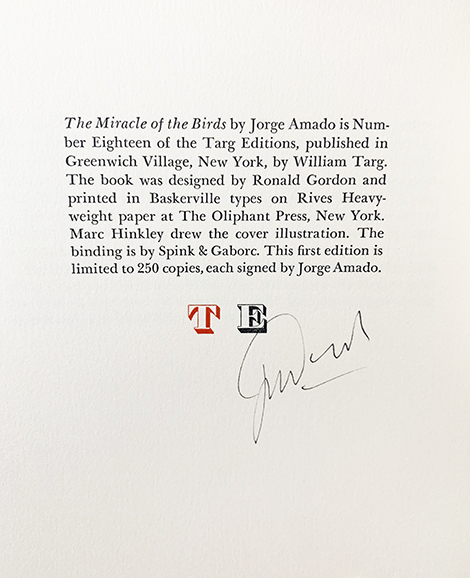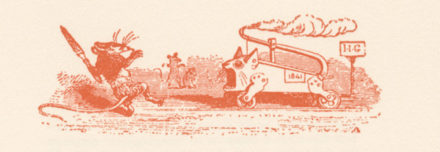Jorge Amado. The Miracle of the Birds
Targ Editions No. 18
"At parties, fairs, christenings, even a bishop’s pastoral mission to Arapiraca, Ubaldo Capadócio turned up with his concertina, his guitar, and a suitcase full of ballads all ready to hang on the line, raking in a fair harvest of coins and breaking hearts right and left." - Jorge Amado, The Miracle of the Birds
Jorge Amado’s writing reflects the rich complexity of his birthplace in the Brazilian state of Bahia, where an African heritage permeates and inspires the region’s culture and arts. Born in 1912, Amado grew up in middle class comfort on a cacao plantation, attended the Jesuit college in Salvador, and studied law at the Federal University in Rio de Janeiro.
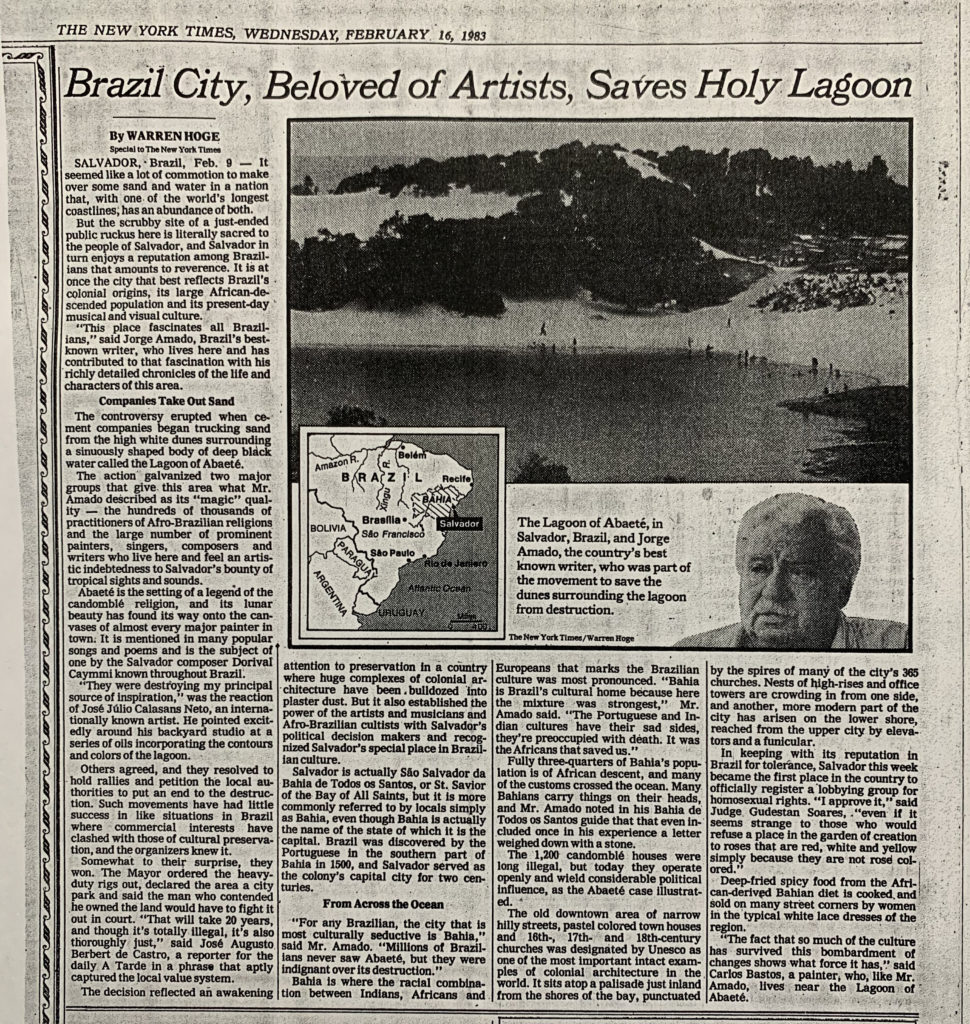
Publishing his first novel at age 19, he pursued a career in journalism and politics as a member of the “generation of 1930,” the Brazilian Regionalists. Imprisoned and exiled in the 1930s for his leftist writings and activities, he was elected in 1946 to the Constituent Assembly, representing the Communist Party of Brazil. He went to Moscow in 1950 to receive the Stalin Peace Prize, lived for five years in Paris and Czechoslovakia, and spent time with Europe’s left-wing intellectual community. Eventually disillusioned by Stalin, Amado continued to embrace a uniquely Bahian perspective in his observations of Brazilian society and the human condition.
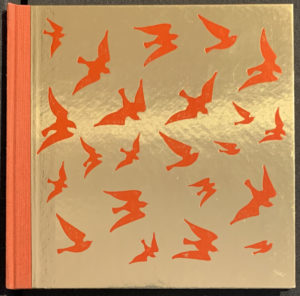
Amado’s publisher was Alfredo C. Machado, head of Distribuidora Record in Rio and Brazil’s leading publisher of general-interest fiction and nonfiction, who also published works by Amado’s wife, best-selling author Zelia Gattai. Amado went on to publish more than 30 books, which were translated into 49 languages across 55 countries, making him one of Brazil’s best-loved writers. His Gabriela, Clove and Cinnamon and Dona Flor and Her Two Husbands became successful movies and prime-time television series. The 1979 Broadway musical Saravá is based on Dona Flor.
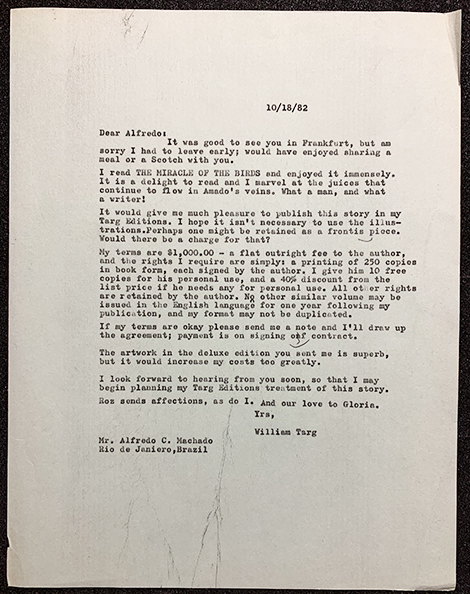
The Miracle of the Birds was commissioned in 1979 by a financial institution as a year-end gift to staff and published by Harper’s in 1982. William Targ published it in 1983, and it became a TV movie in Brazil in 2012. A bawdy tale of infidelity, the story includes actual figures in Brazilian culture, such as poet Florisvaldo Matos and Heloísa Leite de Medeiros, wife of modernist writer Graciliano Ramos de Oliveria. Inspired by cordel poetry, Amado, like his protagonist Ubaldo, weaves together fact and fiction, rejecting a class-bound academic mantle others sought to impose while celebrating the diverse voices of his homeland.
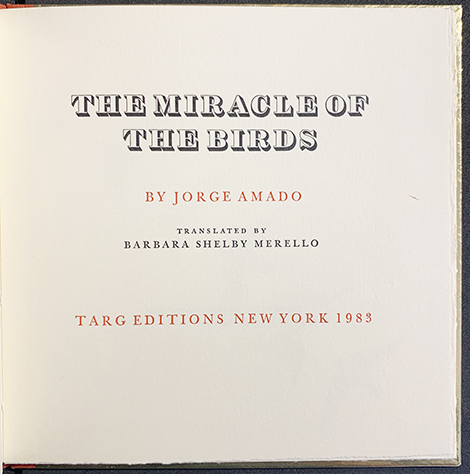
Linda Hall describes Amado as, “one of the most tender, sensual, and optimistic Latin American authors in his vision of women and of male-female relationships” who “elevates the heroines in his stories to goddess-like stature while maintaining their warm humanity.”
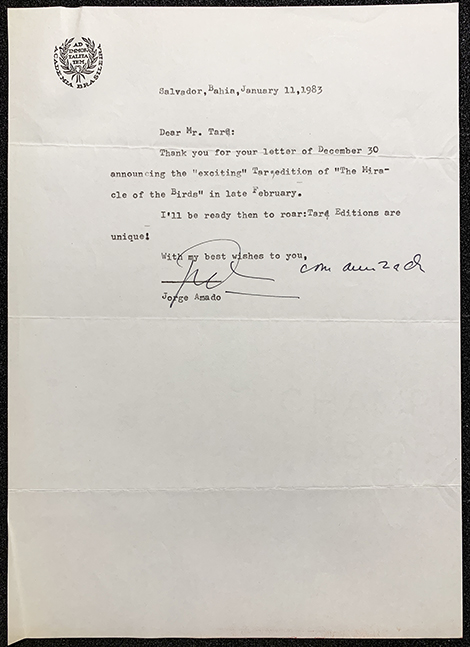
From The Miracle of the Birds:
“Yet another source of local pride was the fact that the town sheltered within its unbreached stone walls the aforementioned Captain Lindolfo Ezequiel and his legal wife, Sabô, also aforementioned but clearly deserving more ample reference to her graceful form, her dancing walk, a rear end that was a living legend, the dimples in her cheeks, and the way the hussy bit her lips to make them redder, as if saying, Oh, yes, I’d like to, ooh, I wish I could, and so on and so forth.”
Jorge Amado died in 2001 in Salvador, Bahia.
